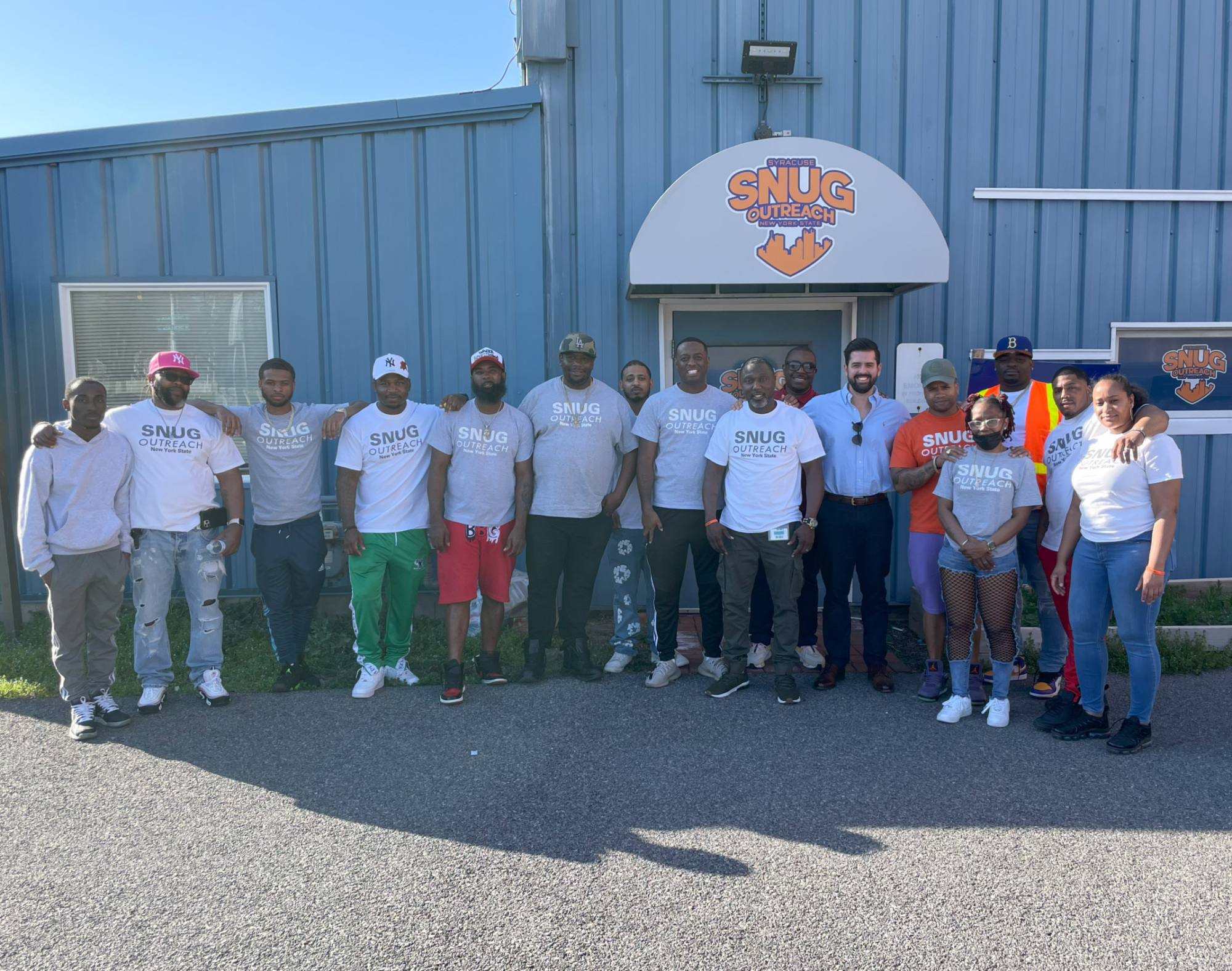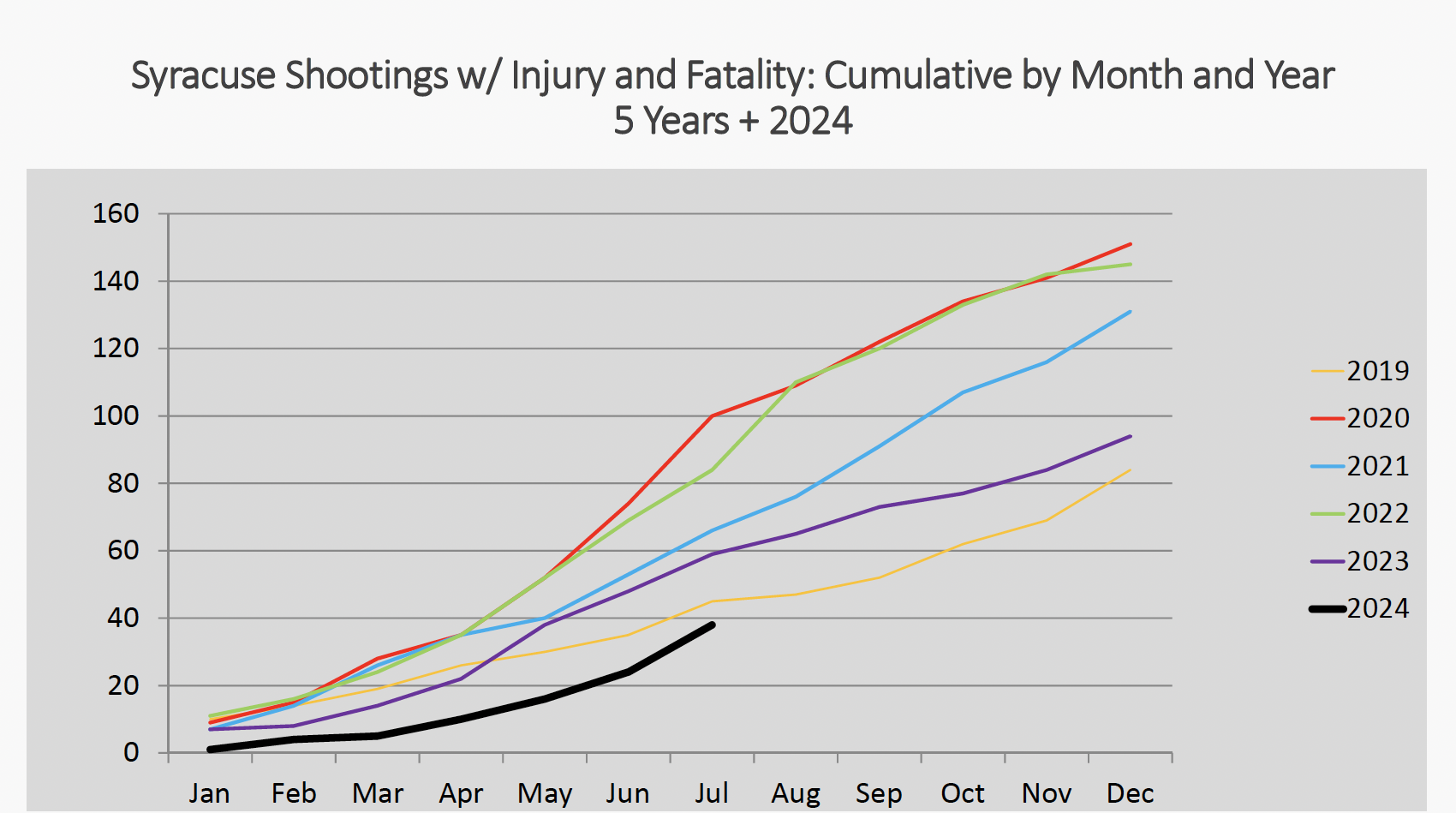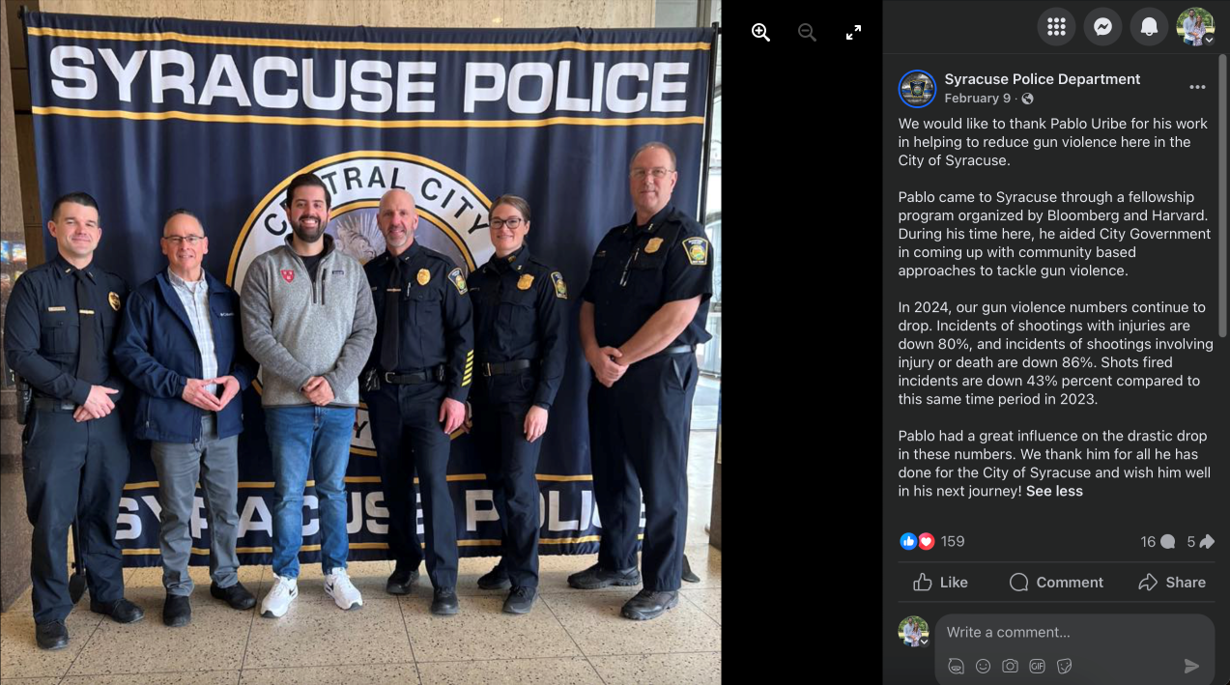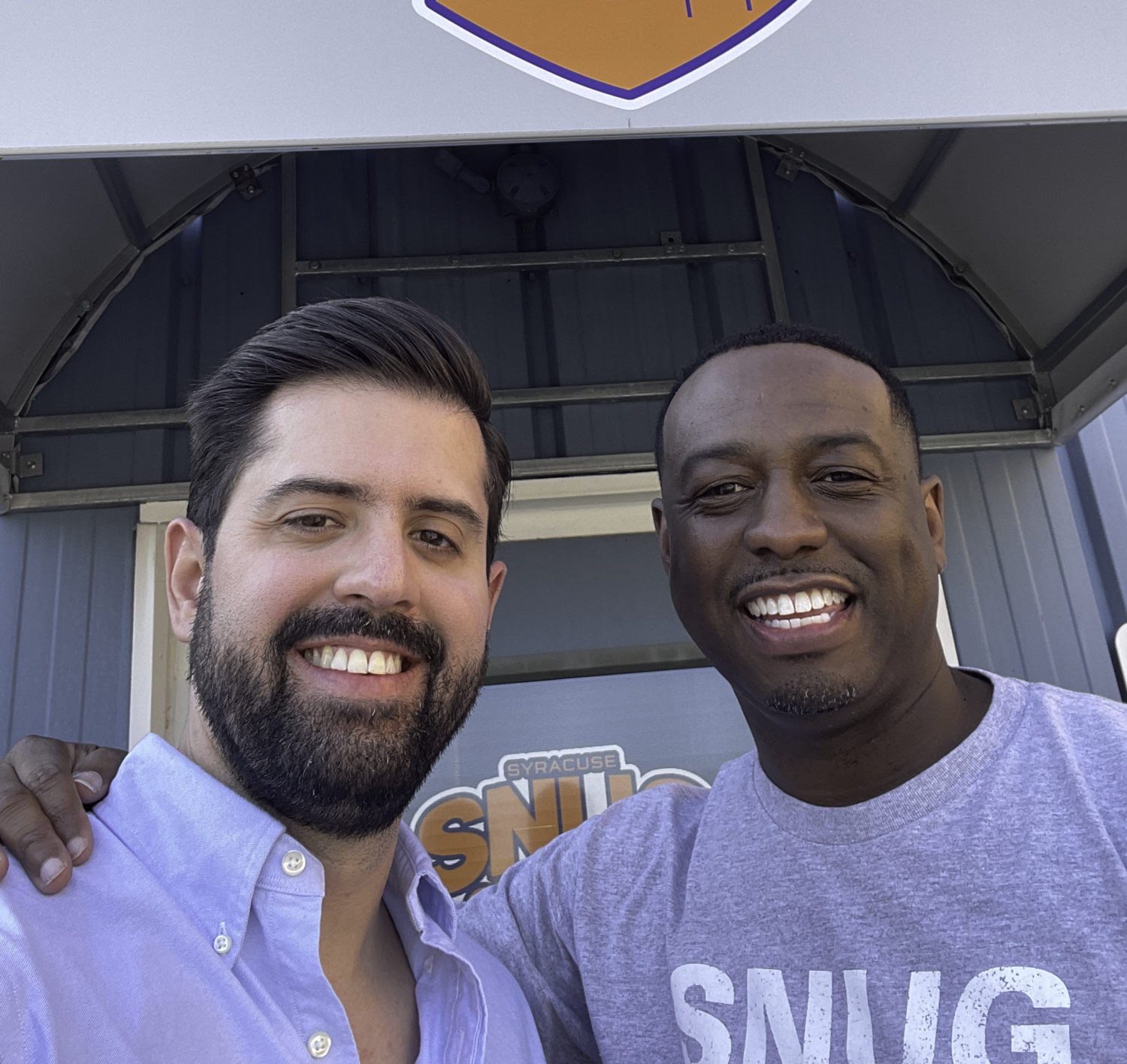The People Lab
Designing and Testing Methods for Take-up of Economic Impact Payments

Highlights
Pablo Uribe thought he was done with fighting crime. That was his job as the deputy security director of his hometown of Cali, Colombia. He’d had success with reducing the murder rate there, but was feeling burned out by the work. So when Uribe left to get his master’s at the Harvard Kennedy School, he was ready to find a new purpose in public service.
That plan took a turn as he approached graduation in 2022. Uribe landed a Bloomberg Harvard City Hall Fellowship, which placed him in Syracuse, New York, for two years to work on one of Mayor Ben Walsh’s top priorities. The priority, it turned out, was reducing gun violence.
Drop in the number of shootings causing injury or death
Despite some early misgivings, Uribe now calls his fellowship “the best job of my life.” As a fellow, Uribe not only got to employ the leadership and innovation skills he’d learned at Harvard. He also joined a cohort of like-minded young leaders who convened regularly for workshops with Harvard faculty and staff to learn from each others’ experiences working in city halls across the United States. Uribe likens the expertise-deepening aspects of his fellowship journey to a medical residence for public management. “Two years of applying these things you learn from your master’s degree and the convenings makes you a better public manager,” he says.
Graduated: 2022 from Harvard Kennedy School, Master’s in Public Administration
Fellowship location: Syracuse, New York
Work focus: Reducing gun violence
Next job: Deputy Secretary for Public Safety Management, Valle del Cauca state, Colombia
In Syracuse, Uribe started working with Lateef Johnson-Kinsey, a pastor and school administrator who just months earlier had been named the first director of Mayor Walsh’s new Office to Reduce Gun Violence. Uribe embraced the challenge of working in a city where homicides had been trending upward for a decade. He started out by gaining a deep understanding of the problem. Uribe spoke with police officers, government officials, and community leaders, scoured public safety data, and read every report on crime in the area. As a newcomer to Syracuse, Uribe brought a fresh perspective. He wrote up his observations in a 65-page assessment, which the city published in December of 2022. The paper reverberated across the city, and cleared the way to try new things.
One of Uribe’s key findings was that the Syracuse Police Department had settled into a reactive pattern of responding to violent crime after it happened, and needed to shift to a more proactive stance. Rather than tell the police how to do that, he held a series of workshops with patrol officers, lieutenants, and captains from across the department — using a problem-solving framework he had learned at the Kennedy School — to get their ideas. They then put together three-month implementation plans around the most promising solutions.
One focus area: Police were spending five times more working hours handling domestic disputes than gun-violence cases. It’s not that those domestic calls weren’t important, Uribe says, but they typically could not advance the city’s goal of reducing gun violence. Syracuse changed its response protocol to send social workers to many of those cases instead of police. “That liberated a whole lot of time for those patrols to go to crime hotspots in the city and monitor those places,” Uribe says.
The police also asked for more data to do their jobs better. They came up with the idea of supporting teams on patrol with data analysts back at headquarters. Those data analysts continually push intelligence out into the field, giving patrol teams everything from information on recent crimes where they are working to real-time updates from closed-circuit TV cameras. “They’re constantly being fed data so they can take proactive actions,” Uribe says.
These and other changes had a profound and immediate impact. By the time Uribe’s fellowship ended in mid-2024, the number of shootings causing injury or death in Syracuse had dropped by 56 percent. “We reversed a decade of growth in gun violence in just two years,” Uribe says. “The fact that I left and the city continues to deliver results on gun-violence reduction, that is the best thing.”
Reflecting on his time in Syracuse, Uribe says he learned a lot about leadership and how city halls can be places for public leaders to catalyze real change that saves lives. “I didn’t invent anything with the police — it was all their ideas. I built a holding environment in which they could face the problem and come up with solutions,” Uribe says. “That is something I learned at the Kennedy School: When you are addressing a thorny public problem, the only way you can solve it is to give the work back to the people who are part of it.”
Uribe is putting that lesson to work in his next job back home in Colombia. The Governor of Valle del Cauca, the state where Cali is located, hired him to be Deputy Secretary for Public Safety Management. “It’s a redemption story, because I didn’t want to go back into public safety. I thought I didn’t have it in me anymore,” Uribe says. “Now I have it in me. I know I was born to do this. This is my calling in life.”
Key Insight
When you’re trying to solve complex problems, every interested party is an expert because they live with the problem. Have the humility to be quiet and listen to them.Pablo Uribe
Bloomberg Harvard City Hall Fellow, Syracuse, New York, 2022-2024

Next story
The People Lab



